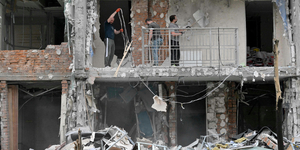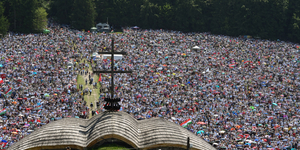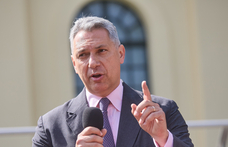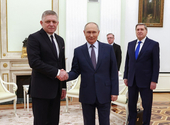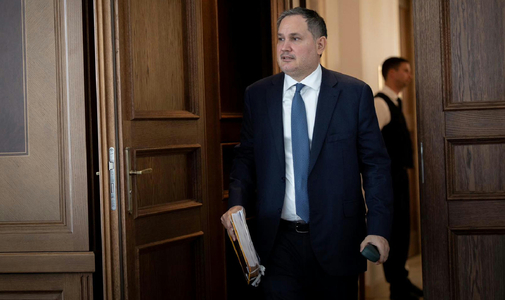Credit is getting more expensive, and interest payments will rise too following interest rate hikes in three of the EU's new members. The markets were prepared for the Slovak and Hungarian moves, but the extent of the hikes - half a percentage point in Slovakia and Hungary - came as a surprise, while experts were not sure in advance that the quarter point rise in the Czech Republic would take place. In Poland, the central bank has made no immediate change, but warned that a rise may yet come this year.
The Hungarian National Bank was the first to move: the monetary policy committee unanimously decided to raise the lending rate from 6.25 per cent to 6.75 per cent, the highest rate in the EU. The markets had only priced in half of this hike in, taking their lead from the 19 June decision to bring about a 25 basis point rise. That hike had little effect, and the forint continued to fall. The central bank justified the latest move by pointing to the threat of inflation.
Another argument in favour of a hike was that following interest rate rises in Japan, the EU and the US, investors could only be enticed into financing Hungary's twin deficit by the prospect of even greater yields. In this case, the rate rise led to an immediate strengthening of the forint, which was helped by EU finance commissioner Joaquin Almunia's comment that the Hungarian government was only now making serious attempts to cut the budget deficit.
The Czech monetary policy commity was divided over the necessity of raising interest rates. The decision to raise rates for the first time in nine months rode on a single vote. The country's 2.25 per cent rate is still the lowest in the EU. Sweden is the only other country in the EU that can afford to offer yields below the Eurozone's 2.75 per cent rate. Zdenek Tuna, the president of the Czech central bank, said: "The Czech economy is a fantastic condition," justifying the decision with reference to the threat of inflation arising from the country's robust growth.
The Czech economy grew 8.2 per cent in the first quarter, and record growth of 6.2 per cent is expected for the full year. Car exports and wage rises may push inflation up from a planned 1.9 per cent level to
2.6 per cent. The budget deficit may also be much higher than last year, since the Social Democrat-led coalition was generous with social spending in the run-up to the June elections. The budget deficit is likely to rise from last year's 2.7 per cent level to 3.7 per cent of the country's GDP, exceeding the 3 per cent threshold for adopting the euro.
But there is little reason for worry in Prague, since investor sentiment is good, with foreign investors announcing a record 84 projects in the first half, worth USD2.8bn. Unemployment fell to 7.7 per cent in June, its lowest level since 2004. The main reason for uncertainty is the fact that the Czech Republic has little in the way of a government after the June elections ended in a stalemate. With the two main parties seemingly unable to reach a compromise, a re-run of the election may prove the only solution.
The Slovak Central Bank reached a unanimous decision to raise rates to 4.5 per cent, warning that further hikes might follow. The reason given was that strong growth was stoking inflation. Foreign investment grew 6.3 per cent in the first quarter, with 6.6 per cent growth expected by the end of the year. Despite lower than expected inflation over the past year, high oil prices, higher pension payments and wage increases for public sector workers were all inflation risks, the bank said.
It was the Polish Central Bank that broke the trend, leaving interest rates at 4 per cent while leaving open the possibility that rates - at records lows for Poland - might rise by the end of the year. Warsaw pointed out that inflation had slowed to 0.8 per cent year on year in May. Inflation in 2006 looks set to be at 1 per cent, far lower than the 2.5 per cent forecast.



